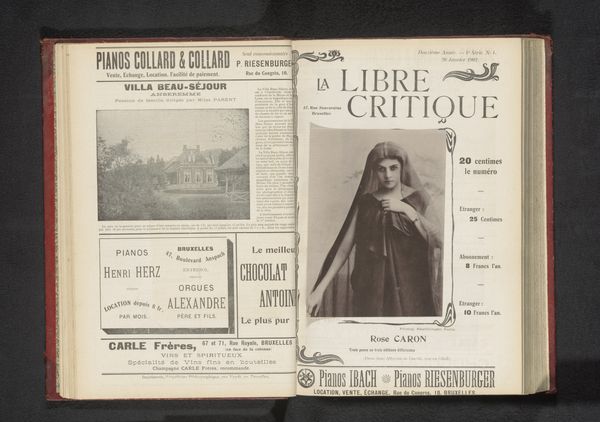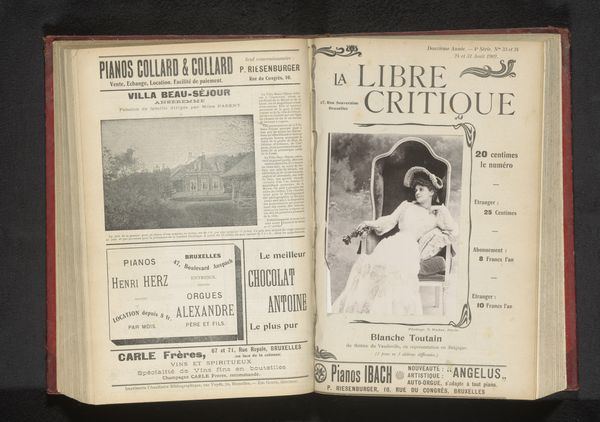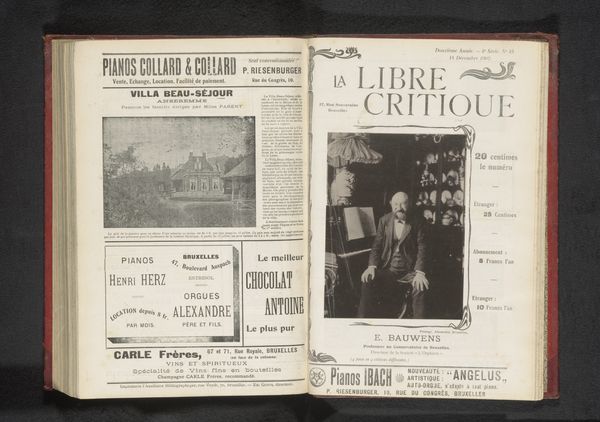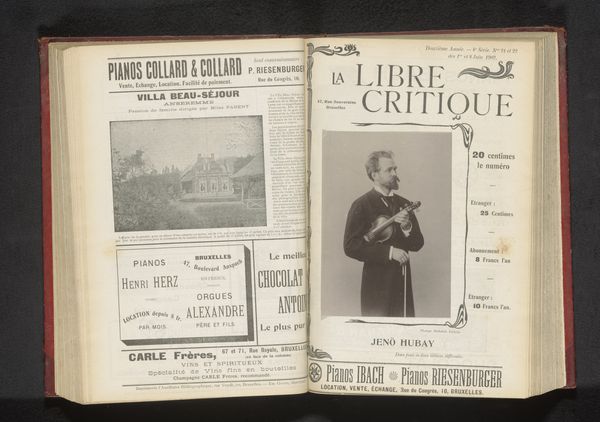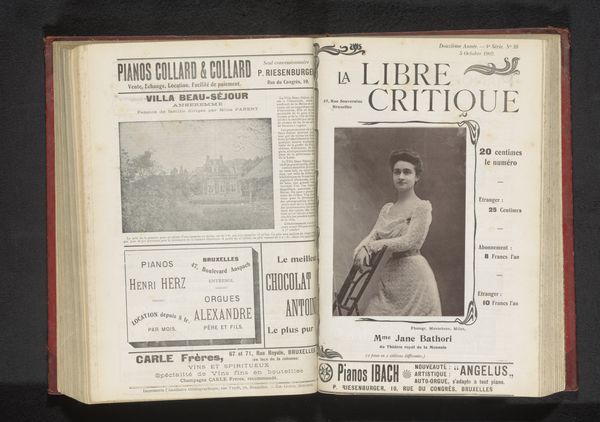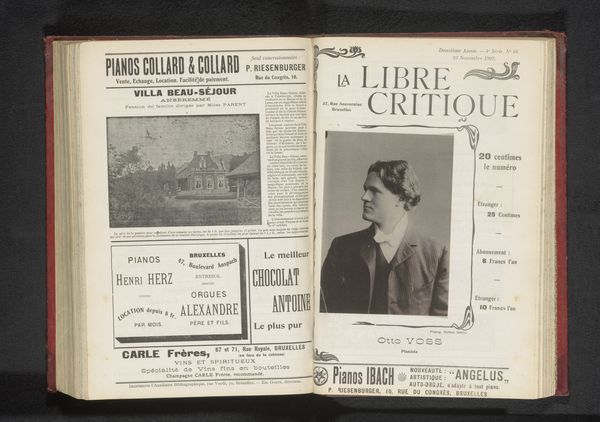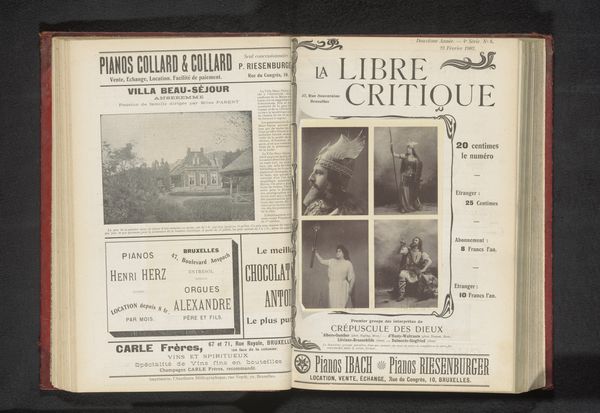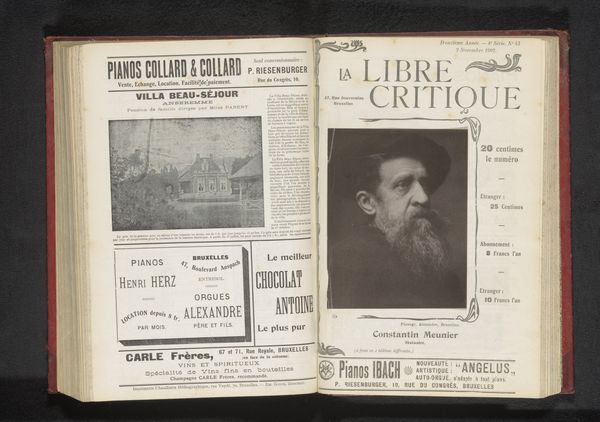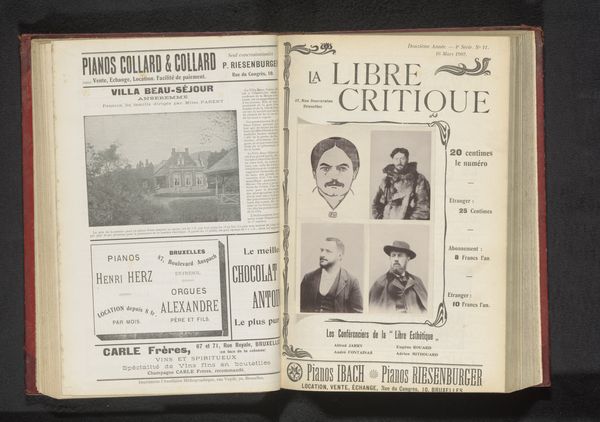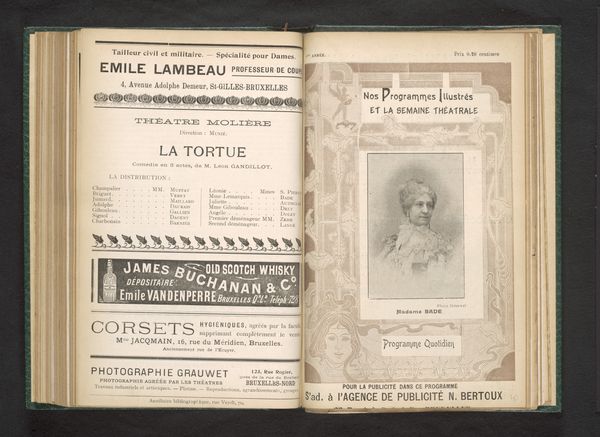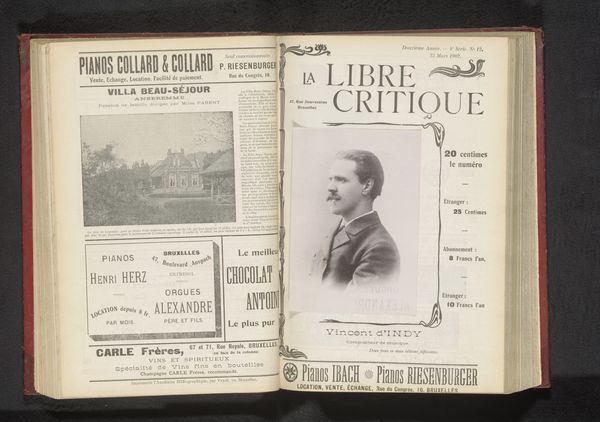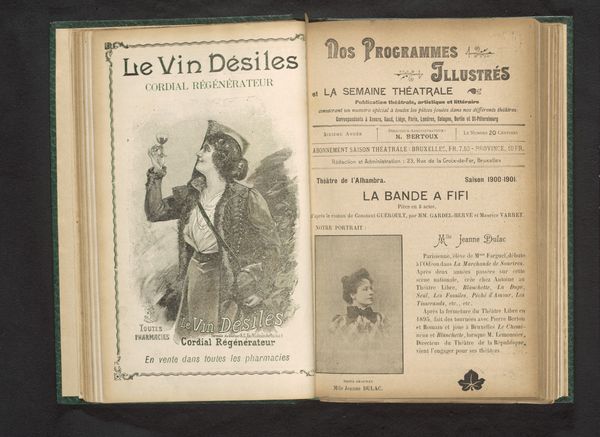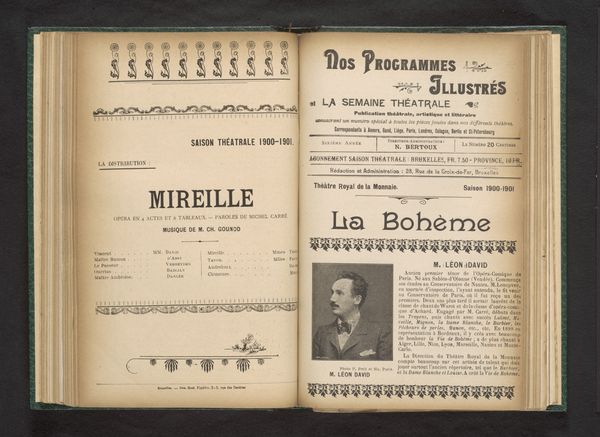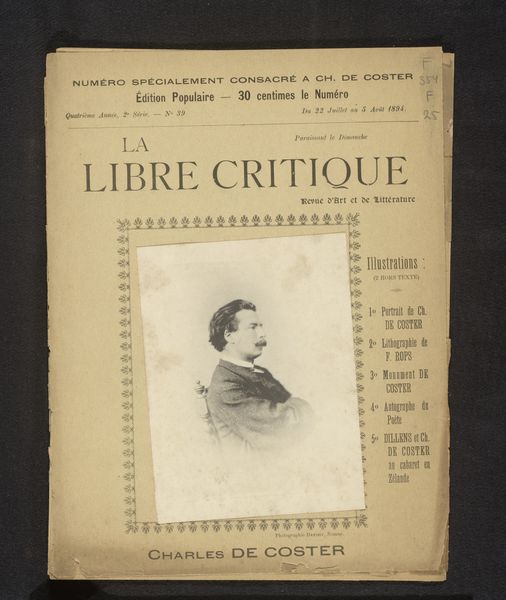
photography
#
photography
#
orientalism
Dimensions: height 138 mm, width 99 mm
Copyright: Rijks Museum: Open Domain
Editor: Here we have an intriguing piece, "Portret van Henri Albers," a photograph by Ch. Reutlinger dating back to before 1902. It's presented as a page within an old magazine or journal, amidst period advertisements. The sitter is in an exotic, almost theatrical, "oriental" costume. What social or cultural narratives do you see operating in this image? Curator: The presentation is key. It is important that we recognize the placement within what looks like a journal from the time. The so-called "oriental" costume is loaded with complex meaning, particularly considering the subject is a western opera singer. Can we look at it beyond surface level exotification? It appears as orientalism; however, it becomes part of an artistic persona adopted by Albers, a claim of creativity that transcends established cultural boundaries. How does the image function as both exotic and deeply personal? Editor: I hadn’t thought of it as an act of artistic expression rather than mere cultural appropriation. So the setting--the advertisement and journal format—how does this contextualize this “orientalism”? Curator: The image and the framing advertisement are intrinsically linked. Consider how commodity culture reinforces the orientalist fantasy. Albers, the “oriental” figure, and the commodities advertised all promise escape, indulgence, access to “otherness” all framed in a time of intense colonial power. The magazine normalizes cultural consumption alongside orientalist fantasies. Editor: So it's less about Albers himself, and more about what the image represents in a larger cultural context of consumerism, identity, and power structures? Curator: Precisely! It calls on us to question how performativity is not limited to just the stage, but to larger issues about the construction of self and culture at the turn of the century. What initially appears to be about opera is instead a visual negotiation of race, representation, and the economy. Editor: I see the artist as not just a performer, but an active participant and mirror reflecting the nuances of social discourse.
Comments
No comments
Be the first to comment and join the conversation on the ultimate creative platform.
